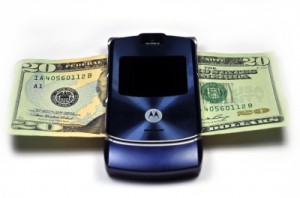A recent report from the Washington Post may reveal a pattern by pre-pay cell phone providers to overcharge customers.
Black people, minorities and low income people make up a large percentage of the pre-paid cell phone market. There are various reasons for this including credit issues. But many people, regardless of color, have decided to forego contracts and choose to go with pre-paid phones to save money.
But if the Washington Post report is correct you may be getting ripped off every time you make a call. It may only be for a few pennies but that money adds up to millions in the pocket of pre-paid providers.
“In the prepaid world, they definitely try and find ways to rip you off.” Daniel Beringer, Telecom Analyst
The Post reported that carrier AT&T and T-Mobile may be adding seconds to each call to charge for additional minutes that the caller did not use.
The scheme works like this; each time a call is made it is normal for the service provider to round up the time to the next minute. So a call that lasts two minutes and twelve second is rounded up to three minutes. That is standard industry practice. But in the case examined by the Post call times were boosted by as much as 33 seconds. The result is that the caller’s minutes are used up more quickly causing them to have to purchase more minutes from the provider. If you are charged as much as five minutes a day more than you actually use you could be buying time more than you should.
AT&T recently received permission from the federal government to merge with Cricket Wireless adding 5 million additional customers to its pre-paid customer roles. T-Mobile claims more than 15 million pre-paid customers.
In tests conducted by the Post calls made on the AT&T phones of 49 to 59 seconds were regularly counted as two minute calls. Calls that lasted 2 minutes and 53 seconds were recorded as 3 minutes and 3 seconds resulting a charge of 4 minutes to the caller.
In response AT&T issued a statement as follows; “The time displayed on the phone does not necessarily reflect the actual start and end periods recorded for the time charged to the customer. A call’s time begins when you press the send button. And, a call’s time ends after you press the end button and your phone’s signal to disconnect is received by the network and the call disconnect signal is confirmed.”
Black people already pay too much for some things; sometimes by design, sometimes not. But if you are one of the 30 million pre-paid customers you better start watching you minutes. Lower income customer should be most alert of the scheme and lodge your complaints as some have already.

